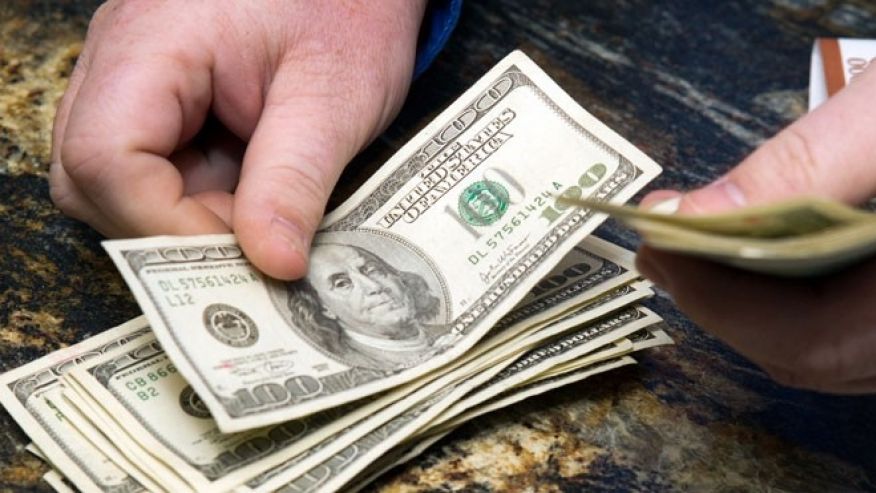Sens. Rubio and Kirk: If Iran wants access to the dollar it must clean up its act
By Sen. Marco Rubio, Sen. Mark Kirk /April 28, 2016/FoxNews.com
Last year, as the Obama administration urged support for the flawed Iran nuclear deal, it repeatedly claimed the deal would not undermine America’s broader efforts to halt Iran’s destructive behavior in the Middle East and beyond. “We harbor no illusions about the Iranian government’s nefarious activities beyond its nuclear program,” Treasury Secretary Jacob Lew wrote in July 2015. “Make no mistake: we will continue to impose and aggressively enforce sanctions to combat Iran’s support for terrorist groups, its fomenting of violence in the region, and its perpetration of human rights abuses.”But now that the administration has implemented the flawed deal against the will of majorities in the Senate and the House of Representatives, it has dropped the tough talk on Iran. Worse, Secretary of State John Kerry is leading U.S. officials in siding with the Iranian terror regime’s complaints that the deal—which, among many other things, unfroze over $100 billion in overseas assets—still did not provide enough sanctions relief.
Access to the U.S. dollar is not an international right. But if Tehran wants access, the onus should be entirely on Iran to clean up its act and reduce the risk that Iran’s dangerous activities pose the global financial community. On Friday, Secretary Kerry tried to reassure international financial institutions about the risks of doing business with Iran. But as he tries to offer new unilateral concessions to Iran, Secretary Kerry is willfully ignoring an important fact: Iran is denied access to America’s financial system and transactions in U.S. dollars, not because of the Iranian nuclear program, but rather because of Iran’s abuse of its own financial system to promote terrorism and other dangerous activities. In February 2009, the Financial Action Task Force (FATF), an important inter-governmental body that sets standards to prevent abuse of the international financial system, called on its members to apply countermeasures against Iran to “protect their financial sectors from money laundering and financing of terrorism risks emanating from Iran.”
In response to FATF’s action, international financial institutions have rightly been wary of doing business with Iran due to the risk of enabling Iran’s terrorist financing and other illicit activities. In fact, the U.S. Treasury Department even issued a finding in November 2011 that Iran is a jurisdiction of primary money laundering concern under the USA PATRIOT Act’s Section 311. The nuclear deal changes none of this because, as administration officials admit, Iran remains the world’s foremost state sponsor of terrorism and its ballistic missile program and related pipelines for proliferation and money laundering continue to flourish. In a speech in Washington on April 15, Iran’s Central Bank Governor Valiollah Seif claimed Iran has addressed money laundering and terrorist activities. But as with most statements by Iranian leaders, Seif’s claims are far from the truth. In fact, FATF declined in February to reverse its past warnings about Iran’s misuse and abuse of its financial system, and instead renewed its call for international countermeasures. Given FATF’s prestige and membership, this is a clear indictment of Iran’s continuing dangerous behavior.
Despite Secretary Kerry’s advocacy on behalf of Iran’s financial system, the U.S. Treasury Department noted last month that Iran continues to engage in deceptive financial practices in support of terrorism when it imposed modest sanctions against entities and individuals associated with Iran’s Mahan Air.
Moreover, Under Secretary of State for Political Affairs Thomas Shannon told the Senate Foreign Relations Committee this month that Iran’s destabilizing activities have not abated. Indeed, Shannon conceded Iran continues to support Hezballah terrorists, prop up the Assad regime in Syria and the Houthi rebels in Yemen, and systematically violate the human rights of its citizens, including by detaining over 1,000 political prisoners and subjecting them to harsh treatment as well as extended pretrial detention. In addition, Iran is accelerating the development of ballistic missiles capable of carrying nuclear weapons with launches in October 2015 and March 2016, including the test of one missile inscribed with the phrase in Hebrew, “Israel must be wiped off the arena of time.”
Iran does not need access to the U.S. dollar, nor should we allow it because it would serve to facilitate and further all of its destabilizing activities by boosting the very same Iranian financial system that the administration is now trying to enrich and empower. Access to the U.S. dollar is not an international right. But if Tehran wants access, the onus should be entirely on Iran to clean up its act and reduce the risk that Iran’s dangerous activities pose the global financial community. Yet Iran refuses to address grave and growing concerns about its destabilizing activities and deceptive financial practices. And, sadly, the administration appears to be more focused in capitulating to Tehran than in forcing Iran’s terror regime to fundamentally change its behavior. It’s time for the U.S. to stop making unreciprocated concessions and to start holding Iran fully accountable for continuing its dangerous and destructive behavior.
**Republican Marco Rubio represents Florida in the U.S. Senate. He is a member of the Senate Committee on Commerce, Science and Transportation and a candidate for the Republican nomination for president in 2016.
**Mark Kirk is a United States Senator from Illinois and a member of the Republican Party.
http://www.foxnews.com/opinion/2016/04/28/sens-rubio-and-kirk-if-iran-wants-access-to-dollar-it-must-clean-up-its-act.html






















